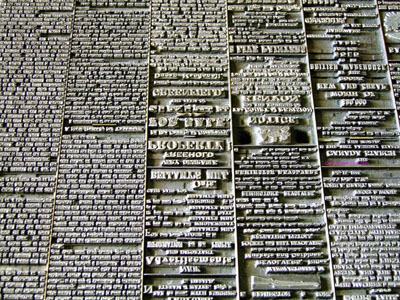Are People with the Same Family Name Related?
| Tweet |
|
Surnames in families change more frequently than most people realize. Two people can share a surname and have no biological relationship to each other. Common surnames, such as Smith and Jones, can have multiple independent founders. As well, adoptions, misspellings, name changes (sometimes used to hide a criminal or immigration past) and non-paternities (the husband is not the biological father of the child) all serve to confuse the picture.
In Britain, surnames have been in existence for only about 700 years. This represents about 25 generations of males, who are the ones that typically carry the surname forward to future generations. So what is the probability that two people having the same surname also share a common ancestor? It turns out that for British men with the same surname, there is a 24% probability of having a recent common ancestor.

Turi King, a doctoral researcher at the University of Leicester performed genetic tests on a random sample of 150 pairs of British men who shared the same British surname. King found the probability of having a common ancestor is less than 24% for more common surnames but is greater than 24% for less common surnames, which are more likely to have single founders. The probability of having a common ancestor rises to nearly 50 percent for rare surnames. The full technical report can be found here.
One interesting outcome of the King study is that it validates genetic testing of people with the same surname to determine if they are related. There is, however, one major caveat. Private genetic testing can help determine if two people with the same surname are related, but most of these tests would require many more markers than are currently used to determine the specific link between two people.
In other words, private genetic tests that are popular with some genealogists can be used to determine if two people are related, but they are not accurate enough to determine exactly how two people are related.
Here are some factors that increase the probability of two people with the same surname having a common ancestor:
• If the surname is rare.
• If the surname is an unusual spelling of a more common surname.
• If the surname refers to a small town or specific locality.
• If you have evidence your ancestors stayed in the same small locality for many generations and you come across someone with the same surname from the same region.
Here are some factors that decrease the probability of two people having a common ancestor:
• If the surname refers to any occupation (such as Smith, Cooper, Baker, etc.). These types of surnames are not always easy to spot. Many occupations have fallen out of use. For example, the surname Baxter refers to a female baker.
• If the surname is a color, thing or place (such as Black or Underhill).
• If the surname refers to a physical characteristic (such as Small).
• If your ancestors emigrated from another country and you suspect they changed their name.
• If the surname refers to the son of someone (such as Anderson or Johnson).
You Might Also Like:
Use the Genealogy Search Engine to see how many hits you get for your surname.

